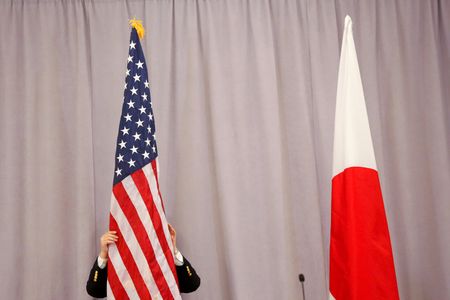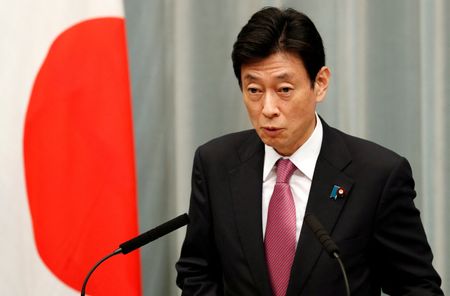TOKYO (Reuters) -Japan will ask the United States to be more flexible on electric vehicle (EV) purchase incentives for non-American carmakers, Kyodo news agency reported on Friday, citing unidentified government sources.
The move follows a statement from South Korea’s foreign ministry saying Seoul is seeking a three-year grace period on the U.S. Inflation Act to enable its automakers to continue receiving EV incentives in the United States.
The law restricts tax credits for EVs to those assembled in North America.
After President Joe Biden signed the legislation, credits for about 70% of the 72 models that were previously eligible ended, according to the Alliance for Automotive Innovation, an industry trade group.
The Biden administration said in mid-August that about 20 models still qualify for tax credits of up to $7,500.
The Japanese government will soon submit a request for the relaxation of requirements for the tax credits to the U.S. treasury department, Kyodo said, adding it would work with South Korea and European countries to ask for flexibility.
The government will seek to make nearly completed cars exported from Japan eligible for the tax credits as long as the final process takes place in the United States, Canada, or Mexico, Kyodo said.
It will also request Japan to be counted in the tax credit requirement that a certain percentage of the critical minerals used in car batteries must be extracted and processed in the United States and other countries with which the United States has a free trade agreement, according to the report.
Japanese Industry Minister Yasutoshi Nishimura expressed concern to U.S. Commerce Secretary Gina Raimondo about the law at a meeting in Los Angles in September. The Nikkei newspaper reported Nishimura told his U.S. counterpart at the meeting the legislation may violate international law.
The Japan Automobile Manufacturers Association, a major Japanese auto lobby, said in August it was concerned about the law and would keep a close watch on developments.
(Reporting by Elaine LiesEditing by David Goodman and Mark Potter)


